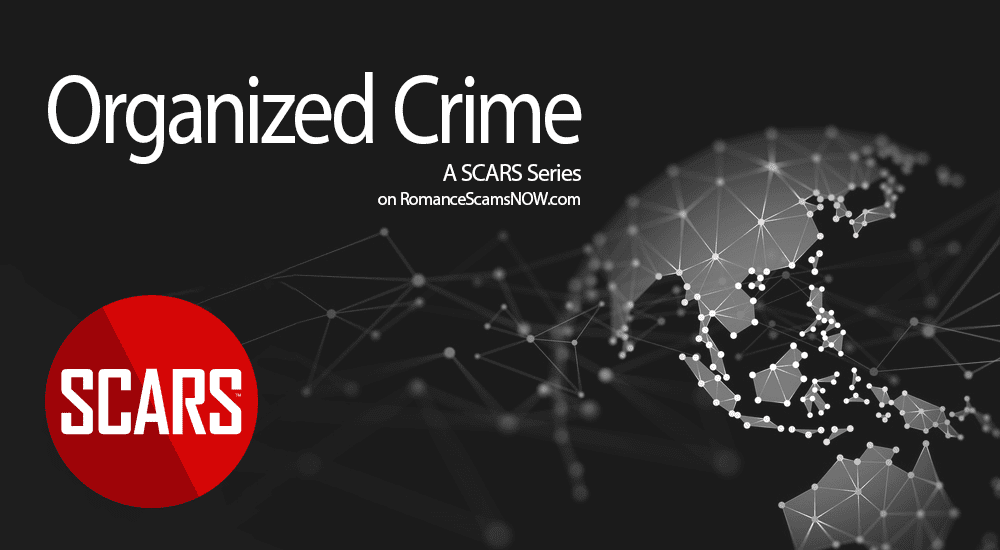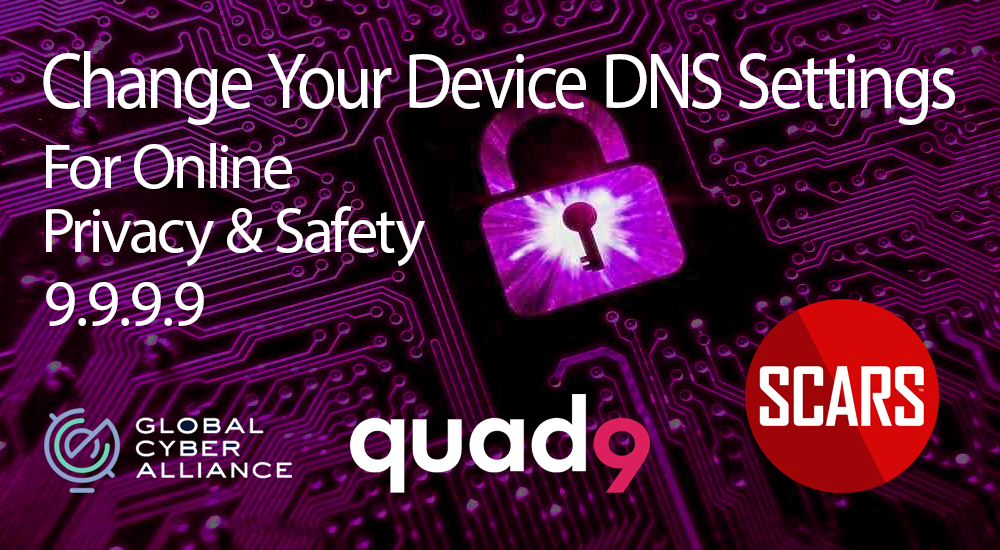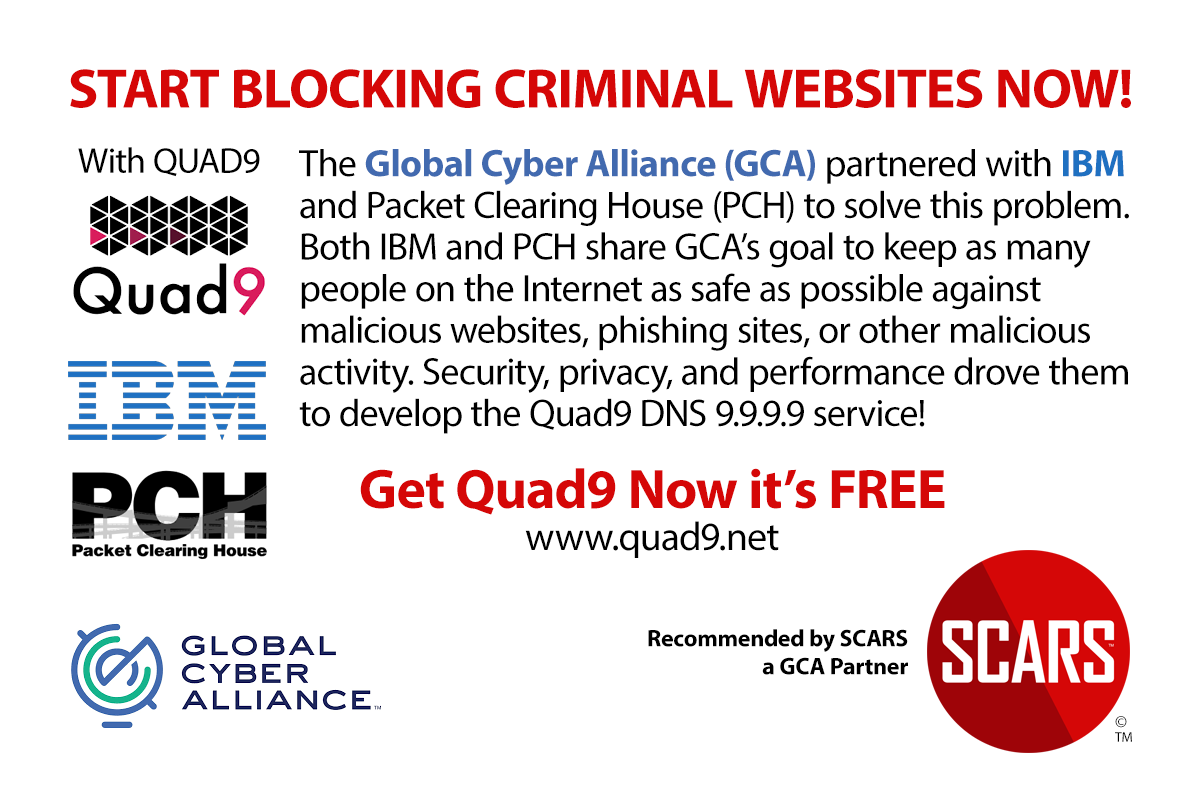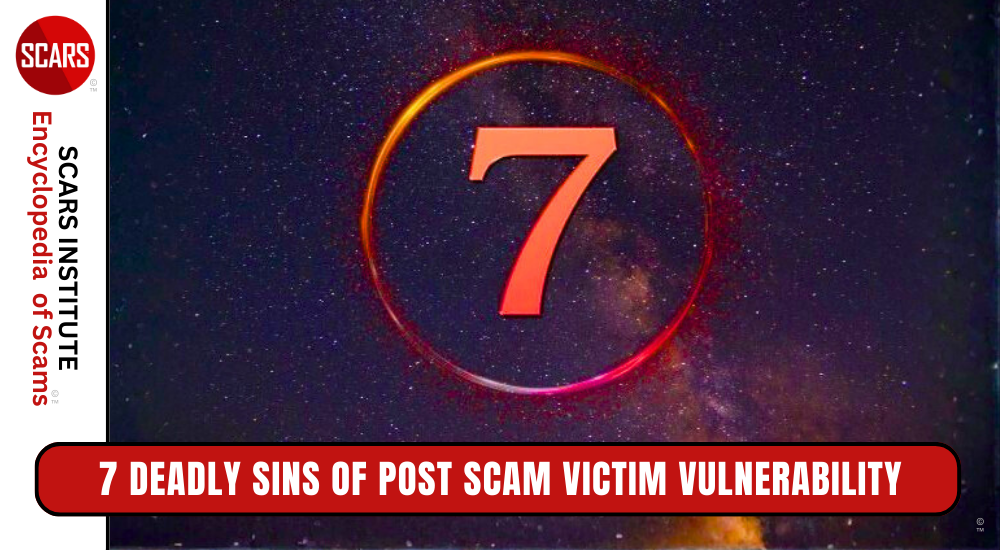
SCARS Institute’s Encyclopedia of Scams™ Published Continuously for 25 Years

Understanding DNS: Changing DNS Server Settings On Your Device For Improved Safety, Privacy, & Cybersecurity
This article is going to talk about DNS – something buried deep inside the Internet and something most users will never see. However, it can have a massive impact on your online safety and cybersecurity.
This may seem very technical and it is, but most users can actually make this change themselves just by following instructions.
DNS Introduction
When you type a website’s name into your browser, it’s not as simple as it seems. The Domain Name System (DNS) translates that name into a numeric IP address that computers understand. This translation allows you to access the desired web server. But why should you care about DNS? Well, it plays a crucial role in your online security, privacy, and even the speed of your internet surfing.
What Do DNS Servers Do?
Computers speak in numbers, but we prefer using memorable website names like pcmag.com. DNS servers act as translators, converting these names into numeric IP addresses, enabling our devices to reach the correct servers.
Change DNS Servers?
Your device usually sets up your DNS servers to work with your Internet Service Provider (ISP) but these servers are not always optimal or especially safe.
Slow DNS servers can drag down your internet speed, especially when loading pages with content from various domains like ads. Switching to faster DNS servers can speed up your browsing, but more importantly, switching can also keep you much safer online – this is not a ‘nice to have’ – this is a MUST HAVE!
Under the Hood for Security & Safety
The DNS server setting impacts your device security in several ways. DNS stands for Domain Name System, which is a service that translates human-readable domain names (such as www.AgainstScams.org) into numerical IP addresses (such as 254.254.254.254) that computers can understand. DNS servers are the ones that perform this translation service.
By default, your device uses the DNS server provided by your Internet Service Provider (ISP), which may not be very secure or private. Your ISP can see and log all the websites you visit and may use this information for advertising or other purposes and may restrict or slow down some services, such as streaming video. A malicious DNS server can also redirect you to fake or harmful websites, or block access to certain websites.
Some businesses offer specialized DNS services, such as what SCARS recommends: Quad9. They filter out harmful websites, blocking them before reaching employees’ browsers. Additionally, DNS-based parental controls help limit children’s access to inappropriate content across all devices. Also, importantly, this is FREE! It is not a service you must subscribe to. In the case of QUAD9 it is based by IBM and the Global Cyber Alliance so it is not going away! [Note SCARS is a Global Cyber Alliance Partner!]
Why Changing Servers Must Be Done For Your Online Safety
To improve your device security, you should change your DNS server to a more secure and reliable one, such as Quad9 DNS. Their DNS servers offer features such as encryption, malware protection, phishing prevention, and content filtering. They also support DNS over HTTPS (DoH), which is a protocol that encrypts your DNS queries and prevents third parties from snooping on them.
Here’s why you might want to change your DNS servers:
- More security: Some DNS servers offer additional security features, such as filtering out malicious websites or preventing DNS hijacking and cache poisoning attacks.
- Privacy: Your ISP can see what websites you visit through their DNS servers. Some people prefer to use a different DNS server to keep their browsing history private.
Privacy Concerns with DNS Servers
When you browse the internet, your ISP’s DNS servers see every domain you visit. Some ISPs use this to their advantage by redirecting your browser to an ad-laden page when you mistype a web address. This might seem harmless, but it compromises your privacy by sharing your browsing habits. Also, some ‘typo’ domains (domain names deliberately off a character or two) are malware delivery sites.
DNS Threats: Phishing and Cache Poisoning
Phishing scams involve fake websites that mimic legitimate ones, aiming to steal login credentials. By manipulating DNS caches, attackers can direct you to fraudulent sites without altering the address bar, making it difficult to spot the scam. Cache poisoning and DNS hijacking are techniques these scammers use to deceive users.
Understanding these DNS threats and the potential downsides of using default DNS servers provided by your ISP can help you make informed decisions about your online security and privacy. Changing your DNS server to more reliable and secure options can greatly enhance your internet experience, ensuring a faster, safer, and more private browsing experience.
Summary
It is essential to change your DNS to a safer alternative, such as QUAD9. The best feature of Quad9 is that it prevents your browser from visiting dangerous domains and websites.
To learn more about Quad9 visit www.quad9.net
More About Changing Your DNS Settings:
- Quad9 | A public and free DNS service for better security and privacy
- Quad9 Connect – Get Quad9 on Android Phones Easily – Use Official Quad9 App
- How (and Why) to Change Your DNS Server | PCMag
- How to change Windows DNS server settings | PDQ
- Change DNS settings on Mac – Apple Support
- How to change DNS Settings on iOS? – Help & Support | Lightspeed Kounta POS
-/ 30 /-
What do you think about this?
Please share your thoughts in a comment below!
Table of Contents
- Why Change Your Device’s DNS Settings For Cybersecurity
- Understanding DNS: Changing DNS Server Settings On Your Device For Improved Safety, Privacy, & Cybersecurity
- DNS Introduction
- What Do DNS Servers Do?
- Change DNS Servers?
- Why Changing Servers Must Be Done For Your Online Safety
- Privacy Concerns with DNS Servers
- DNS Threats: Phishing and Cache Poisoning
- Summary
- More About Changing Your DNS Settings:
LEAVE A COMMENT?
Recent Comments
On Other Articles
- Arwyn Lautenschlager on Love Bombing And How Romance Scam Victims Are Forced To Feel: “I was love bombed to the point that I would do just about anything for the scammer(s). I was told…” Feb 11, 14:24
- on Dani Daniels (Kira Lee Orsag): Another Scammer’s Favorite: “You provide a valuable service! I wish more people knew about it!” Feb 10, 15:05
- on Danielle Delaunay/Danielle Genevieve – Stolen Identity/Stolen Photos – Impersonation Victim UPDATED 2024: “We highly recommend that you simply turn away form the scam and scammers, and focus on the development of a…” Feb 4, 19:47
- on The Art Of Deception: The Fundamental Principals Of Successful Deceptions – 2024: “I experienced many of the deceptive tactics that romance scammers use. I was told various stories of hardship and why…” Feb 4, 15:27
- on Danielle Delaunay/Danielle Genevieve – Stolen Identity/Stolen Photos – Impersonation Victim UPDATED 2024: “Yes, I’m in that exact situation also. “Danielle” has seriously scammed me for 3 years now. “She” (he) doesn’t know…” Feb 4, 14:58
- on An Essay on Justice and Money Recovery – 2026: “you are so right I accidentally clicked on online justice I signed an agreement for 12k upfront but cd only…” Feb 3, 08:16
- on The SCARS Institute Top 50 Celebrity Impersonation Scams – 2025: “Quora has had visits from scammers pretending to be Keanu Reeves and Paul McCartney in 2025 and 2026.” Jan 27, 17:45
- on Scam Victims Should Limit Their Exposure To Scam News & Scammer Photos: “I used to look at scammers photos all the time; however, I don’t feel the need to do it anymore.…” Jan 26, 23:19
- on After A Scam, No One Can Tell You How You Will React: “This article was very informative, my scams happened 5 years ago; however, l do remember several of those emotions and/or…” Jan 23, 17:17
- on Situational Awareness and How Trauma Makes Scam Victims Less Safe – 2024: “I need to be more observant and I am practicing situational awareness. I’m saving this article to remind me of…” Jan 21, 22:55
ARTICLE META
Important Information for New Scam Victims
- Please visit www.ScamVictimsSupport.org – a SCARS Website for New Scam Victims & Sextortion Victims
- Enroll in FREE SCARS Scam Survivor’s School now at www.SCARSeducation.org
- Please visit www.ScamPsychology.org – to more fully understand the psychological concepts involved in scams and scam victim recovery
If you are looking for local trauma counselors please visit counseling.AgainstScams.org or join SCARS for our counseling/therapy benefit: membership.AgainstScams.org
If you need to speak with someone now, you can dial 988 or find phone numbers for crisis hotlines all around the world here: www.opencounseling.com/suicide-hotlines
A Note About Labeling!
We often use the term ‘scam victim’ in our articles, but this is a convenience to help those searching for information in search engines like Google. It is just a convenience and has no deeper meaning. If you have come through such an experience, YOU are a Survivor! It was not your fault. You are not alone! Axios!
A Question of Trust
At the SCARS Institute, we invite you to do your own research on the topics we speak about and publish, Our team investigates the subject being discussed, especially when it comes to understanding the scam victims-survivors experience. You can do Google searches but in many cases, you will have to wade through scientific papers and studies. However, remember that biases and perspectives matter and influence the outcome. Regardless, we encourage you to explore these topics as thoroughly as you can for your own awareness.
Statement About Victim Blaming
SCARS Institute articles examine different aspects of the scam victim experience, as well as those who may have been secondary victims. This work focuses on understanding victimization through the science of victimology, including common psychological and behavioral responses. The purpose is to help victims and survivors understand why these crimes occurred, reduce shame and self-blame, strengthen recovery programs and victim opportunities, and lower the risk of future victimization.
At times, these discussions may sound uncomfortable, overwhelming, or may be mistaken for blame. They are not. Scam victims are never blamed. Our goal is to explain the mechanisms of deception and the human responses that scammers exploit, and the processes that occur after the scam ends, so victims can better understand what happened to them and why it felt convincing at the time, and what the path looks like going forward.
Articles that address the psychology, neurology, physiology, and other characteristics of scams and the victim experience recognize that all people share cognitive and emotional traits that can be manipulated under the right conditions. These characteristics are not flaws. They are normal human functions that criminals deliberately exploit. Victims typically have little awareness of these mechanisms while a scam is unfolding and a very limited ability to control them. Awareness often comes only after the harm has occurred.
By explaining these processes, these articles help victims make sense of their experiences, understand common post-scam reactions, and identify ways to protect themselves moving forward. This knowledge supports recovery by replacing confusion and self-blame with clarity, context, and self-compassion.
Additional educational material on these topics is available at ScamPsychology.org – ScamsNOW.com and other SCARS Institute websites.
Psychology Disclaimer:
All articles about psychology and the human brain on this website are for information & education only
The information provided in this article is intended for educational and self-help purposes only and should not be construed as a substitute for professional therapy or counseling.
While any self-help techniques outlined herein may be beneficial for scam victims seeking to recover from their experience and move towards recovery, it is important to consult with a qualified mental health professional before initiating any course of action. Each individual’s experience and needs are unique, and what works for one person may not be suitable for another.
Additionally, any approach may not be appropriate for individuals with certain pre-existing mental health conditions or trauma histories. It is advisable to seek guidance from a licensed therapist or counselor who can provide personalized support, guidance, and treatment tailored to your specific needs.
If you are experiencing significant distress or emotional difficulties related to a scam or other traumatic event, please consult your doctor or mental health provider for appropriate care and support.
Also read our SCARS Institute Statement about Professional Care for Scam Victims – click here to go to our ScamsNOW.com website.

















Thank you for your comment. You may receive an email to follow up. We never share your data with marketers.